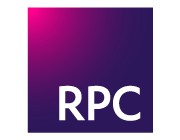Influencer marketing: what next?
updated on 29 June 2021
Question
How are the regulators adapting?Answer
The rise of influencer marketing as an effective tool for brand promotion over recent years has been nothing short of extraordinary. An international phenomenon witnessed across platforms ranging from YouTube to Instagram to TikTok to WeChat Famous, it has been predicted that brands will spend up to USD$15 billion on influencer marketing by 2022. While one view is that this is simply a logical extension of the first commercial relationships between Hollywood screen stars and brands, it's a sector which is rapidly diversifying in order to harness consumer spending most effectively. While the likes of the Kardashian family have become household names, generating millions in revenue, increasingly brands are expanding their marketing strategy and choosing to utilise alternative, less-traditional types of influencer to expand their reach and corner their relevant market niche. More recently we are seeing the rise of a new breed of influencers, ranging from the virtual (see Miquela), to kidfluencers, to micro-influencers and everything in between.
As individuals spend more and more time online, the worlds of ecommerce and social media are converging, allowing influencers to wield increasing power over the lives of consumers. While this allows brands to connect with consumers in exciting and newly authentic ways, the rapid rise and development of influencer marketing is not without its challenges. In January 2019, the Competition and Markets Authority (CMA) published the results of its high-profile investigation into 16 celebrity influencers who it felt had failed to act with sufficient transparency, securing commitments from them to clearly identify where they were acting on behalf of a brand. Around the same time, the influencer sphere was further shaken by the release of the much-lauded Fyre Festival documentary – the footage detailed how prominent influencers had been paid up to a quarter of a million dollars to promote the festival via their social media channels. Following the catastrophic failure of the event (which saw attendees stranded on Great Exuma without adequate facilities and one of its organisers charged with wire fraud), a lawsuit was brought against a number of the influencers used to promote the festival. Both of these incidents raised questions around how ethical or sustainable influencer marketing is.
As with any rapidly developing sector, and particularly one which is heavily interlinked with the digital sphere, it can be hard for the regulators to keep up or adapt sufficiently. In the UK, the CMA and the Advertising Standards Agency (ASA) have been extremely busy and have been taking active steps to ensure that influencers and brands comply with their obligations under consumer and advertising law. That said, at the beginning of this year, the ASA produced a report which found that a large percentage of influencers were failing to observe or act in compliance with the existing rules around product marketing. The CMA similarly found that three-quarters of influencers were "burying" the necessary advertising disclosures in their content.
Consequently, and in response to the ASA's report, the Department for Digital, Culture, Media and Sport (DCMS) has launched an inquiry to examine the power of influencers on social media, how influencer culture operates, and intends to consider the absence of regulation on the promotion of products or services, aside from the existing policies of individual platforms. The inquiry will look to assess influencer impact when it comes to media and popular culture as well as the positive role influencers can play, such as raising awareness for a campaign addressing vaccine hesitancy among people from ethnic minority backgrounds. The government's intention is clear in the statement of the DCMS Committee Chair Julian Knight MP when he says that the committee will "be looking at whether there's a need for tighter regulation in this area and what form that might take". For those operating within the consumer and advertising sphere, be they brands or influencers or members of the legal profession, this remains one of the hottest areas and the DCMS inquiry should be highly revealing as to where the rules of influencer engagement go next.
Eve Matthews is a trainee solicitor at RPC.


